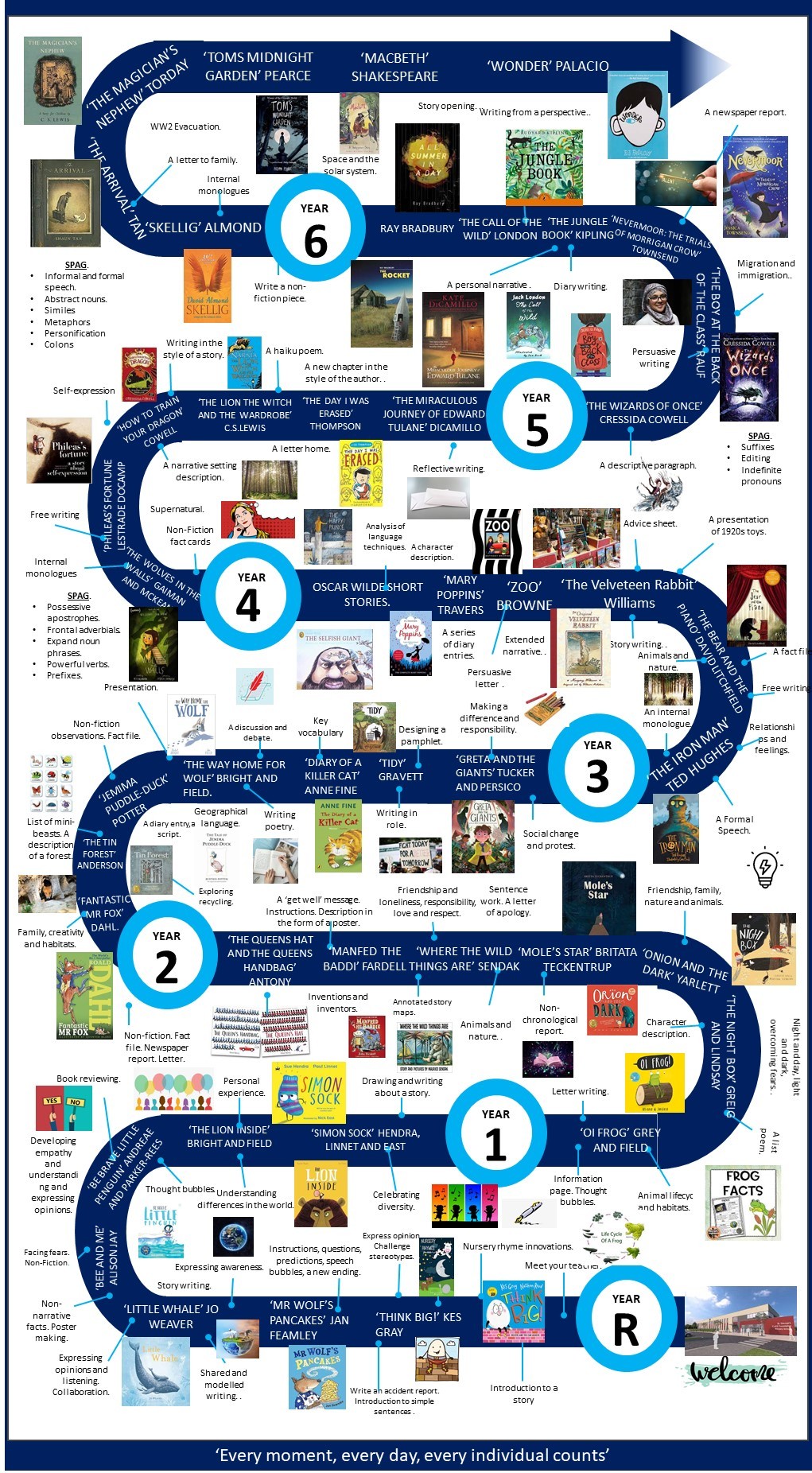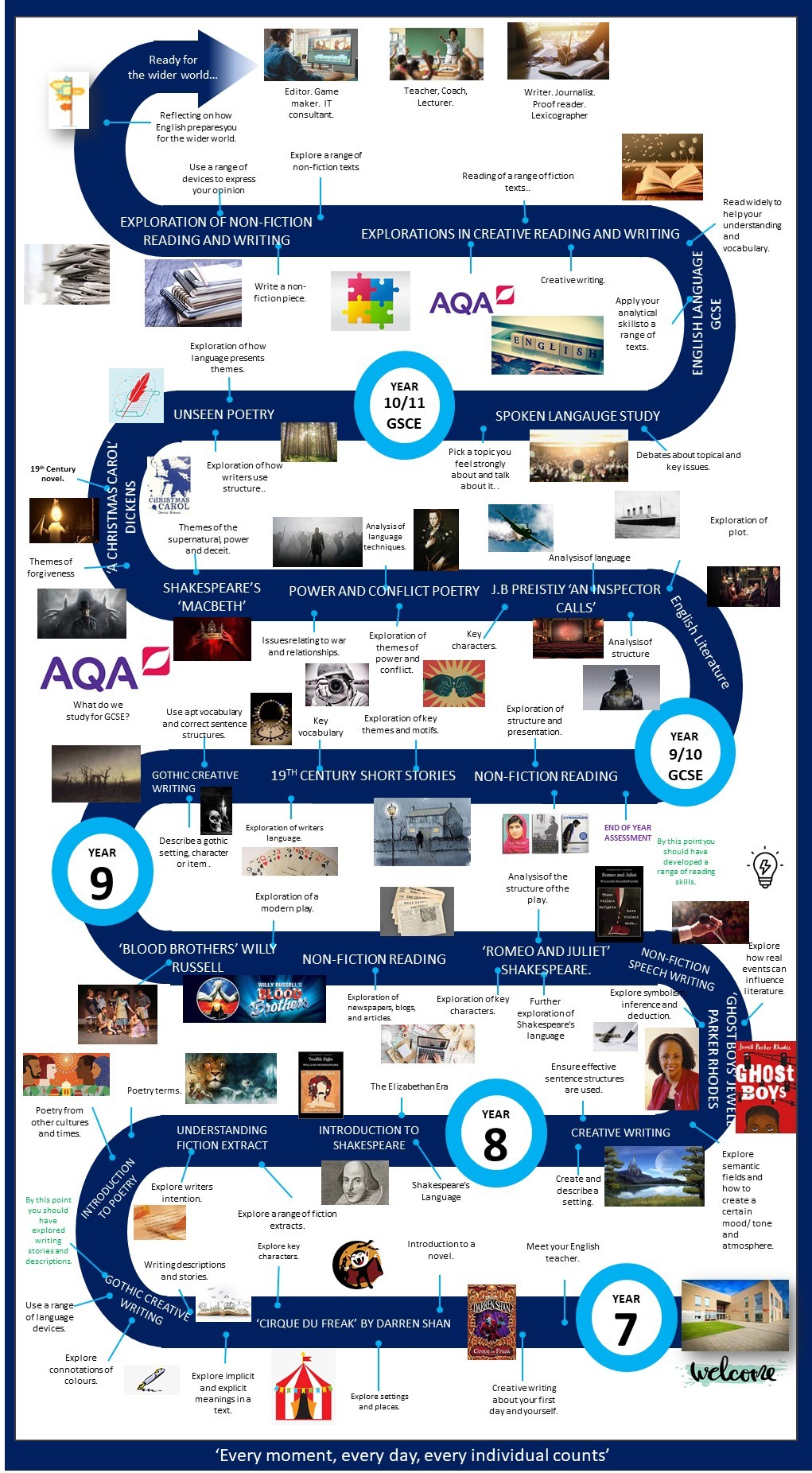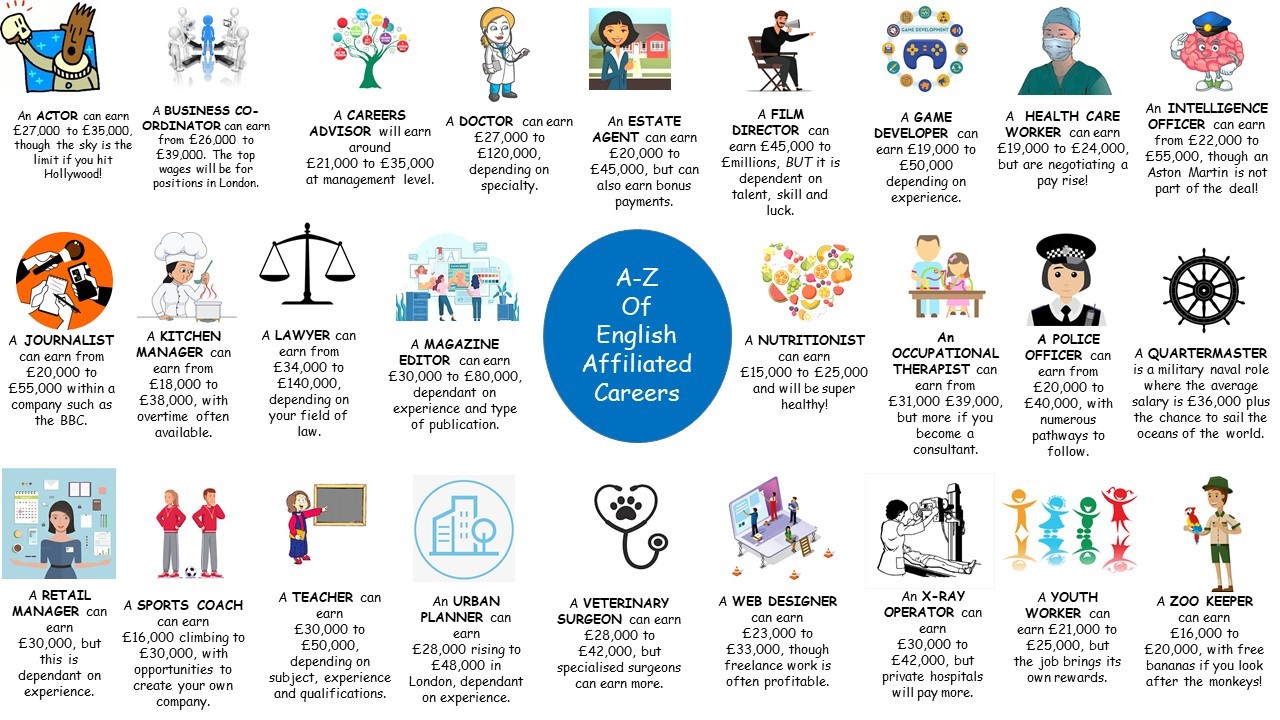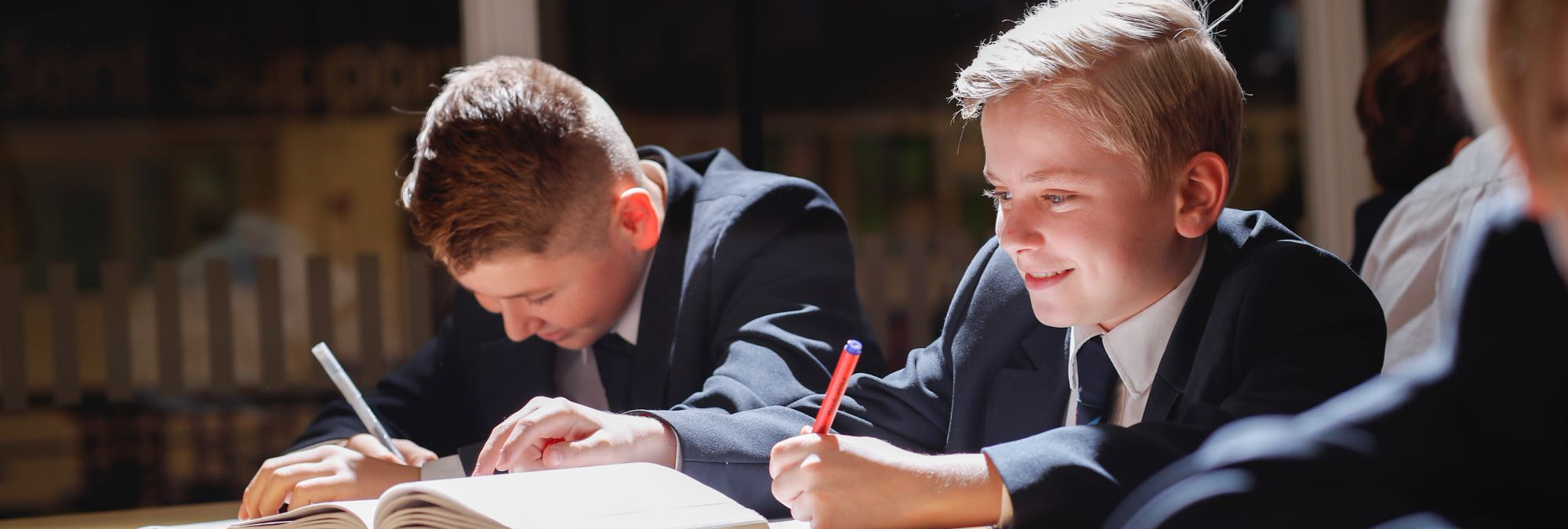English and Literacy
Subject Vision
St George's is a caring and inclusive school that enables every individual to flourish spiritually, morally and academically for the rest of their lives. We aim to be a lighthouse for our local community by being a beacon of God’s love. We provide a progressive curriculum that is adventurous and challenging, leading to resilience, curiosity and independence. We aim to inspire all within our community to develop their God given potential for the benefit of others.
"For the body does not consist of one member but of many"
1 Corinthians 12:14
The English Curriculum
Adventure
Within the English curriculum, we ensure pupils embrace adventure through a variety of literary genres, spanning different times, places and cultures. We ensure pupils feel inspired to embark on their own literary adventures, through encouraged independent reading. Our well-stocked library, and suggested booklists, are there to promote reading as a means of discovery.
Challenge
Our curriculum will always be challenging, and we aim to stretch pupils from Year 7 all the way to Year 11. Pupils will be exposed to a variety of texts by a wide range of writers, addressing different genres, styles and forms of texts including fiction prose, poetry, plays and non-fiction texts. We constantly aim to challenge pupils’ knowledge and skills, alongside expanding and enriching their vocabulary.
Resilience
By exposing pupils to a range of challenging texts, we aim to build resilience from year 7. Pupils are challenged to form their own opinions and verbalise these to others. Pupils will also build resilience by working with others to challenge ideas ands ideals presented in a range of literature. Independent learning through homework, revision, timed writing and recall information is targeted to build resilience within the school learning environment.
Curiosity
Pupils will be invited to be curious within the English curriculum, and encouraged to use taught topics to expand independent learning. Pupils will be able to find answers to questions within literary and non-literary genres. Pupils will be asked to question characters, ideas, themes and issues while exploring texts, and will also be encouraged to learn about relevant contextual information.
Independence
The English classroom acts as a space for pupils to express curiosity when exploring literature and a place for independence to grow. Pupils are encouraged and invited to give their opinions and independent viewpoint. We actively encourage pupils to reflect on ideas they have and challenge and encourage others. Students will be able to see how English related skills are valid, not only as a gateway to all other subjects taught in school, but for valuable life skills in order to foster an independent outlook on life.
Community
The English classroom aims to provide a community for pupils to encourage, inspire and question one another, leading to high level discussion, debates and independent ideas. Teachers work as a team, to ensure all pupils are actively engaged in their lessons. We encourage a trusted, safe and secure learning environment in each of our classes where students feel that they are a valid part of their learning community.
Our Learning Journey - KS1 and KS2

Our Learning Journey - KS3 and KS4

Homework
Homework will be set every Friday on Educake and will be due the following Thursday for all year groups.
Access this via Educake | An easier way to assess learning
Pupils should log in with their username given to them by their English teacher.
Subject Information - KS3
GCSE Subject information - English Literature
AQA ENGLISH LITERATURE GCSE (TAKEN AT THE END OF YEAR 10)
English Literature GCSE is designed to inspire, challenge and motivate every pupil, regardless of their ability. This GCSE involves the completion of two examination papers:
Paper One
- Section A: Shakespeare Text: ‘Macbeth’
- Section B: 19th Century Text: ‘A Christmas Carol’ by Charles Dickens
Paper Two
- Section A: Modern Text: ‘An Inspector Calls’ by J.B. Priestley
- Section B: Poetry Anthology: ‘Power and Conflict’
- Section C: Unseen Poetry
All papers are closed book examinations.
English Literature provides skills which will enhance students’ cross-curricular development and future academic studies, including the study of AS and A-level English Literature.
POST-ENGLISH LITERATURE GCSE
Spoken Language Endorsement (previously Speaking and Listening) Pupils will become aware of the importance of effective verbal communication. Preparation towards this endorsed unit will be achieved through the practice and encouragement of good verbal communication in class, with the final completion of a summative assessment.
GCSE Subject information - English Language
AQA English Language GCSE:
English Language GCSE enables pupils of all abilities to develop the skills they need to read, understand and analyse a wide range of different texts covering the 19th, 20th and 21st century. This GCSE also provides students with the skills to write clearly, coherently and accurately using a range of vocabulary and sentence structures. This GCSE involves the completion of two exam papers:
Paper One: ‘Explorations in Creative Reading and Writing’
- Section A requires students to read one fiction source and answer four related questions.
- Section B requires students to produce a piece of writing inspired by an image or a topic.
Paper Two: ‘Writers’ Viewpoints and Perspectives’.
- Section A requires students to read two non-fiction sources and answer four related questions.
- Section B requires students to produce a piece of writing to present a viewpoint on a topic.
Revision information - English Literature
General Information (useful information for Parents)
- In order to be successful in your English Literature GCSE you should revise themes in each text; key characters, language devices, structural features, and think about how and why they are used. Revise the context within which the texts are set. Learn and revise key quotations that support your ideas about themes and characters.
- To revise for the exam, you could use the knowledge organisers and notes from lessons to revise for your exam. Practice exam questions are available below or from your teacher. Use Educake to set yourself tests to revise topics and texts.
| Personal Learning Checklist | see below for PLC for each subject area |
|---|---|
| EXAMPLE EXAM QUESTIONS/MODEL ANSWERS |
Practice Questions - Click Here |
| REVISION MATERIALS/SHAREPOINT | see below for revision materials for each subject area |
Paper 1 section a - MacbethThis section of the paper has an extract from the text and one question to answer for 30 marks. There are a possible 4 marks awarded on top of this for spelling, punctuation and grammar. Personal Learning Checklist
|
PAPER 1 SECTION B – ‘A CHRISTMAS CAROL’This section of the paper has an extract from the text and one question to answer for 30 marks.
PERSONAL LEARNING CHECKLIST
|
Paper 2 section b - Power and Conflict PoetryFor this section a poem from the 15 will be printed. The question requires the pupil to compare this poem to another poem from the anthology. This question is out of 30 marks. Personal Learning ChecklistRevision MaterialsPower and conflict Knowledge Organiser Other Revision Resources:https://genius.com/tags/poetry - all poems with annotations available (scroll down to the Power and Conflict section) |
Paper 2 section c - Unseen PoetryThis section includes two poems which have not been taught in class. One 24 mark question asks the pupils to analyse the first poem. A second 8 mark question asks pupils to compare the methods in this first unseen poem with the second unseen poem. Revision Materialsunseen poetry Knowledge Organiser Other Revision ResourcesMr Bruff’s YouTube videos: Click Here |
Revision information - English Language
AQA ENGLISH LANGUAGE GCSE:
English Language GCSE enables pupils of all abilities to develop the skills they need to read, understand and analyse a wide range of different texts covering the 19th, 20th and 21st century. This GCSE also provides students with the skills to write clearly, coherently and accurately using a range of vocabulary and sentence structures. This GCSE involves the completion of two exam papers:
Paper One: ‘Explorations in Creative Reading and Writing’
- Section A requires students to read one fiction source and answer four related questions.
- Section B requires students to produce a piece of writing inspired by an image or a topic.
Paper Two: ‘Writers’ Viewpoints and Perspectives’.
- Section A requires students to read two non-fiction sources and answer four related questions.
- Section B requires students to produce a piece of writing to present a viewpoint on a topic.
Year 7 and 8 Booster Sessions
Here are the 3 videos from Mrs Davies. Also below are 2 links : one to the powerpoint and one page of the extracts.
Further links:
Careers
English and various Careers <- click here for more information.




